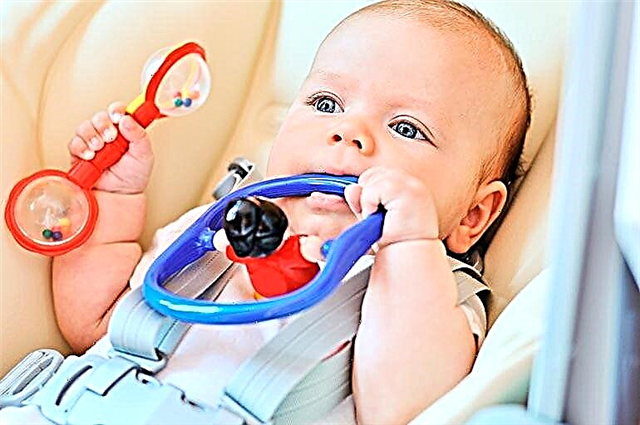Vaccination helps to protect the child from dangerous infectious diseases. After birth, the baby's immune system is still weak, and maternal immunity does not provide one hundred percent protection. Therefore, WHO insists on the need to vaccinate newborns in the maternity hospital to create strong immunity.

Vaccination for a child in a maternity hospital
What vaccinations are given in the hospital
During the period of the child's stay in the maternity hospital, he receives vaccines against tuberculosis and hepatitis B. Other necessary vaccinations are given after the baby is discharged from the hospital. Vaccinations are carried out solely for the purpose of forming strong immunity in the baby. This is a voluntary prevention and immunization measure.
If the child is not vaccinated
Sometimes a baby may not be vaccinated in a maternity hospital (for example, if he and his parents were outside Russia). You must go to a medical facility to get all the necessary vaccinations on time.
Note. If the child is underweight, he is not vaccinated. The baby is under the supervision of doctors for two months. Then he is injected with all the necessary vaccines - there is nowhere to leave the child from compulsory vaccination.
Basic rules for vaccination
Parents need to remember that vaccinations rarely cause complications. If they occur, it is mainly due to the carelessness of medical personnel. To prevent possible complications, parents need to familiarize themselves with the property of the drug being administered in advance.
There are such rules for vaccination:
- Before vaccination, the health worker examines the baby, gets acquainted with the test results, and measures the temperature. He also tells parents about the composition of the drug and the possible risks, informs what vaccinations are given to the child in the hospital.
- If the parents are not satisfied with the drug offered by the clinic, they can buy another (it can be very expensive) and give it to the doctor for injection.
- The vaccine, purchased independently, is stored correctly, in compliance with all the necessary standards.

Vaccine storage
- The vaccine is administered in the manipulation room. After the procedure is done, the necessary information is entered into the medical record.
BCG-M vaccine
The BCG vaccine protects against tuberculosis. Vaccination against tuberculosis has become mandatory in Europe since the 1950s. The vaccinated baby develops antibodies that prevent the infection from spreading and gaining strength. Due to the fact that an unvaccinated organism does not produce the necessary antibodies, the disease develops quickly and takes on a dangerous form.
Note! The risk of developing tuberculosis in infants before they reach one year is 10 times higher than in an adult.
BCG does not guarantee 100% protection against tuberculosis. However, the vaccine protects the child from severe forms of the disease. In case of infection, it is mild. The vaccine is given at 3-5 days of the baby's life. The vaccine is injected into the skin, in the upper third of the shoulder.

BCG administration
If the vaccine has not been given in the genus. home, then it must be delivered to the children's clinic after two months. In this case, the baby is given a Mantoux test before vaccination. It helps to determine if the baby has had tuberculosis during these two months.
After vaccination, immunity develops over the next two months.
Hepatitis B vaccine
This is the first vaccination for a child in a maternity hospital. It is done in the first 12 hours of a newborn baby's life. The risk of contracting the hepatitis B virus in a newborn baby is very high. It affects the liver cells, leads to the development of acute liver failure, cirrhosis and liver cancer. If a child is infected before 4 weeks of age, the risk of developing chronic hepatitis rises to 85%.
Important! The hepatitis B vaccine is given to the baby even before contact with the outside world.
The body's response to vaccination
After the introduction of the BCG vaccine, the child experiences a local reaction of the body. Then a scar appears at the injection site. The larger its size, the higher the degree of protection against tuberculosis.

Scar after BCG
Attention! The site of BCG injection should not be rubbed, lathered abundantly, smeared with antiseptics and baby cream. If a crust appears, it must absolutely not be removed.
In rare cases, BCG can cause complications. They are associated with incorrect administration of the vaccine. Appearance is possible:
- sores at the injection site;
- abscess;
- keloid scar.
In rare cases, the infection can spread to the lymph nodes.
The hepatitis B vaccine is highly purified and therefore well tolerated. A local reaction to the introduction of a vaccine is very rare: it is a slight increase in local temperature, tearfulness, moodiness. All these changes take place within one to two days and do not require correction.
Contraindications for vaccinating children
Contraindications to the introduction of vaccination against hepatitis B:
- premature weight - less than 2 kg;
- low level of the Apgar scale;
- acute illness;
- purulent skin damage;
- diseases of the central nervous system;
- autoimmune diseases.
Contraindications for BCG vaccination:
- immunodeficiency in the parents of the child;
- enzymatic deficiency in a child;
- severe diseases of the central nervous system;
- especially severe pathologies transmitted genetically.
BCG is temporarily not administered to a child with hemolytic anemia, as well as in the presence of an infectious disease.
Do they refuse vaccinations?
Some parents, having learned what vaccinations are given to newborns in the maternity hospital, refuse to administer the vaccine. At the same time, they refer to the small age of the baby and the weakness of the body. Parents have the option not to vaccinate their children. They must confirm their intention in writing, a refusal from one of the parents is required, but it is desirable that there are two signatures: both the father and the mother.
The application is written in three copies: one of them is handed over to the mother, the other is sent to a medical institution, the third copy remains in the pregnant woman's exchange card.
Council. Dr. Komarovsky warns that before refusing vaccination, parents should consider all the risks of such a step. An unvaccinated child is significantly more likely to become infected. Parents should familiarize themselves with the pathogenesis of hepatitis B and tuberculosis before refusing the vaccine. These diseases are treated very hard and for a long time.

Hepatitis in infants
Vaccinations after childbirth are done in the hospital in the first days of life. They are necessary for the formation of the necessary immune protection in the baby. Parents can refuse to vaccinate the child, but they must be aware that the body of the baby in this case will be at risk.



